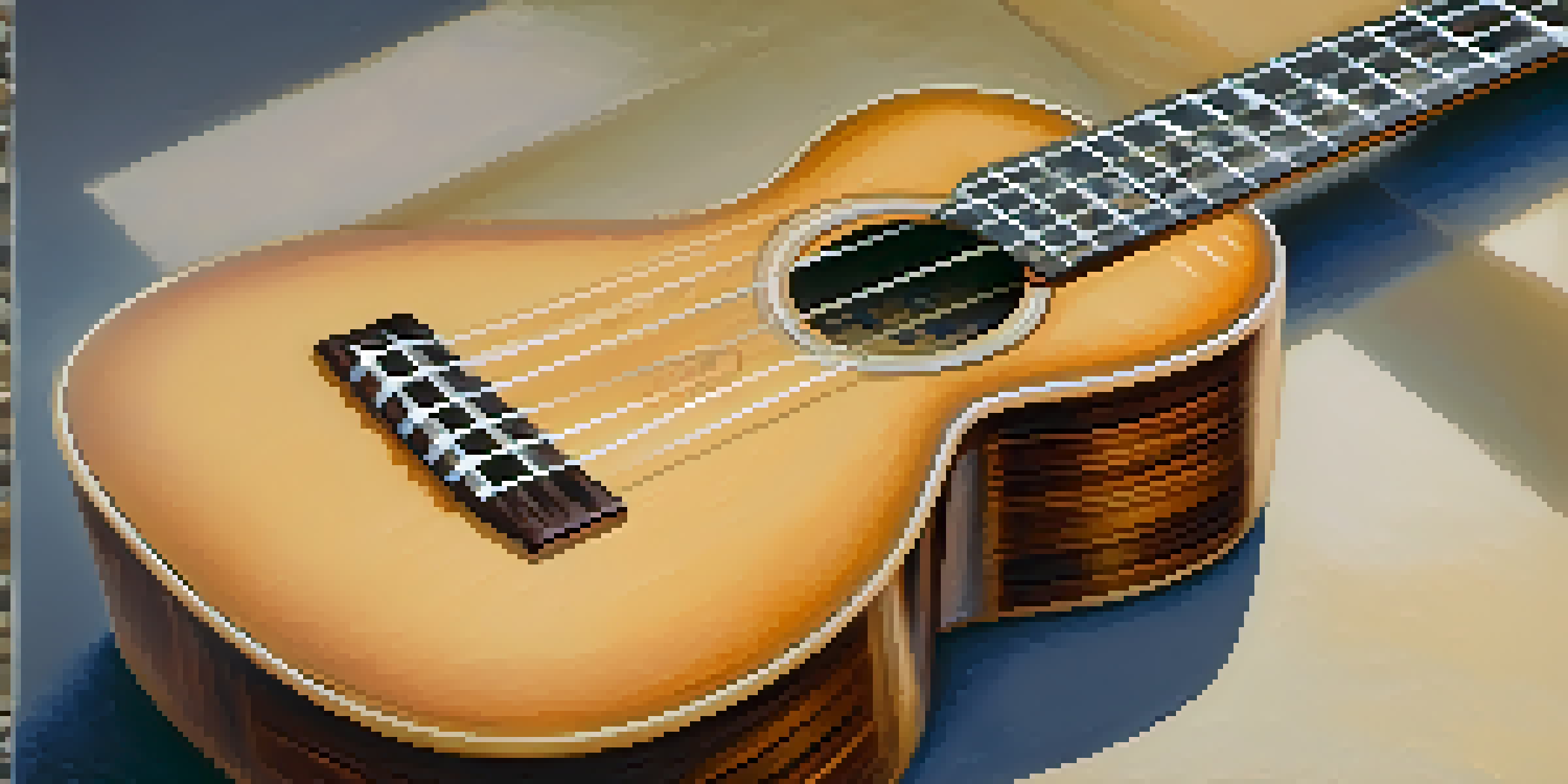The Importance of String Change Frequency for Your Ukulele

Understanding the Role of Ukulele Strings
Ukulele strings are the lifeline of your instrument, directly influencing its sound quality and playability. Just like the tires on a car, the strings wear out over time due to use and environmental factors. This wear can lead to dull sounds, intonation issues, and even broken strings if not addressed. Understanding how strings function can help you appreciate their importance and the need for regular changes.
Signs That Your Strings Need Changing
Have you ever noticed your ukulele sounding off-key or lacking brightness? These are common signs that your strings might need replacing. Other indicators include visible fraying or discoloration, a decrease in tuning stability, and a lack of sustain in your notes. Recognizing these signs early can save you from frustration during practice or performances.
Strings Are Crucial for Sound Quality
Ukulele strings directly influence the instrument's sound and playability, making regular maintenance essential.
Factors Influencing String Lifespan
The lifespan of your ukulele strings can vary based on several factors. Your playing frequency, the type of strings used, and even the climate you live in can all impact how quickly strings wear out. For instance, players who practice daily or perform often may find their strings wearing out much quicker than casual players. Additionally, humid or salty environments can accelerate corrosion, shortening string life.
Recommended String Change Frequency
While there's no one-size-fits-all answer, a general rule of thumb is to change your strings every 1-4 weeks, depending on your playing habits. If you're a beginner who plays a few times a week, changing strings every month might suffice. However, for regular performers or avid players, weekly changes could enhance your sound significantly. Listening to your instrument will guide you in finding the right frequency.
Look for Signs of Worn Strings
Indicators like dull sound, fraying, and tuning instability suggest it's time to replace your strings.
The Benefits of Fresh Strings
Changing your ukulele strings frequently brings several benefits that enhance your playing experience. Fresh strings provide a brighter, clearer tone that can make even the simplest songs sound beautiful. They also improve tuning stability, allowing you to focus on playing rather than constantly re-tuning. Additionally, fresh strings can inspire creativity, as their lively sound encourages you to explore new musical ideas.
How to Change Ukulele Strings Properly
Changing strings may seem daunting, but it's a straightforward process that anyone can master with practice. Start by removing the old strings using a string winder or manually unwinding them. Once removed, clean the fretboard to remove any grime before threading the new strings through the bridge and tuning pegs. Finally, stretch the new strings gently after tuning to help them settle, ensuring they hold their pitch better.
Change Strings for Better Performance
Regularly changing your strings enhances tone clarity, improves tuning stability, and can spark musical creativity.
Common Mistakes When Changing Strings
Even seasoned players can make mistakes when changing strings, which can lead to frustration. One common error is not properly stretching the strings after installation, which can cause them to go out of tune rapidly. Additionally, using the wrong string gauge for your ukulele can affect playability and sound. Ensuring you have the right tools and techniques can make a significant difference in your string changing experience.
Conclusion: Keep Your Ukulele in Top Shape
In conclusion, maintaining a regular string change routine is key to keeping your ukulele sounding its best. By being mindful of the signs of wear and understanding the factors that affect string lifespan, you can ensure your instrument remains vibrant and enjoyable to play. So, don’t hesitate to change those strings—your ears and fingers will thank you for it!